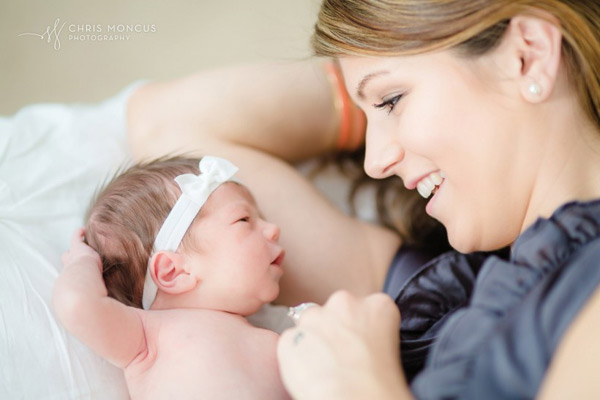
Changes in the vaginal microbiome are associated with effects on offspring gut microbiota and on the developing brain, according to a new study published in Endocrinology, a journal of the Endocrine Society.
The neonate is exposed to the maternal vaginal microbiota during birth, providing the primary source for normal gut colonization, host immune maturation, and metabolism. These early interactions between the host and microbiota occur during a critical window of neurodevelopment, suggesting early life as an important period of cross talk between the developing gut and brain.
“Mom’s stress during pregnancy can impact her offspring’s development, including the brain, through changes in the vaginal microbiome that are passed on during vaginal birth,” said one of the study’s authors, Tracy Bale, PhD, of the University of Pennsylvania. “As the neonate’s gut is initially populated by the maternal vaginal microbiome, changes produced by maternal stress can alter this initial microbe population as well as determine many aspects of the host’s immune system that are also established during this early period.”
In this study, researchers utilized an established mouse model of early maternal stress, which included intervals of exposure to a predator odor, restraint, and novel noise as stressors. Two days after birth, tissue was collected from the moms using vaginal lavages and maternal fecal pellets and offspring distal gut were analyzed. Offspring brains were examined to measure transport of amino acids. Researchers found stress during pregnancy was associated with disruption of maternal vaginal and offspring gut microbiota composition.
These findings demonstrate the important link between the maternal vaginal microbiome in populating her offspring’s gut at birth, and the profound effect of maternal stress experience on this microbial population and in early gut and brain development, especially in male offspring.
“These studies have enormous translational potential, as many countries are already administering oral application of vaginal lavages to c-section delivered babies to ensure appropriate microbial exposure occurs,” Bale said. “Knowledge of how maternal experiences such as stress during pregnancy can alter the vaginal microbiome is critical in determination of at-risk populations.”
The study done by Endocrine Society.